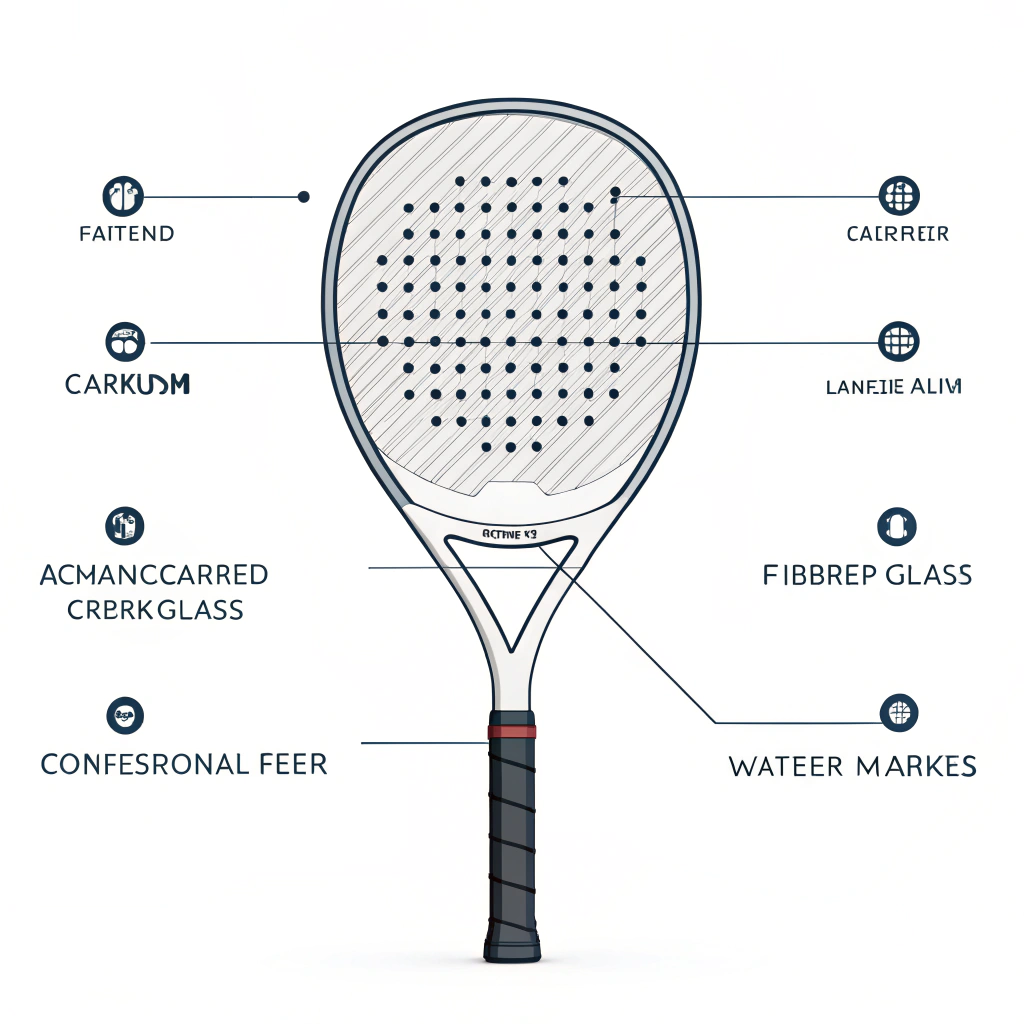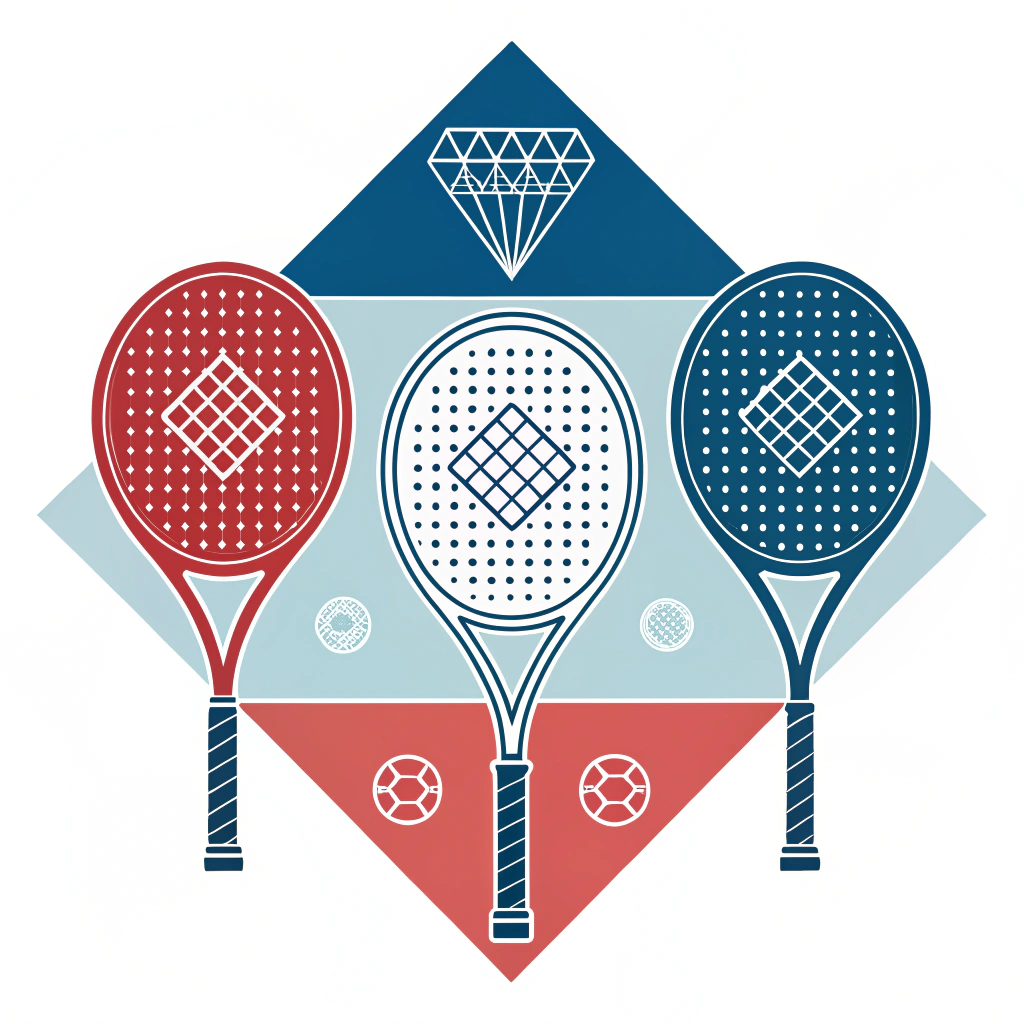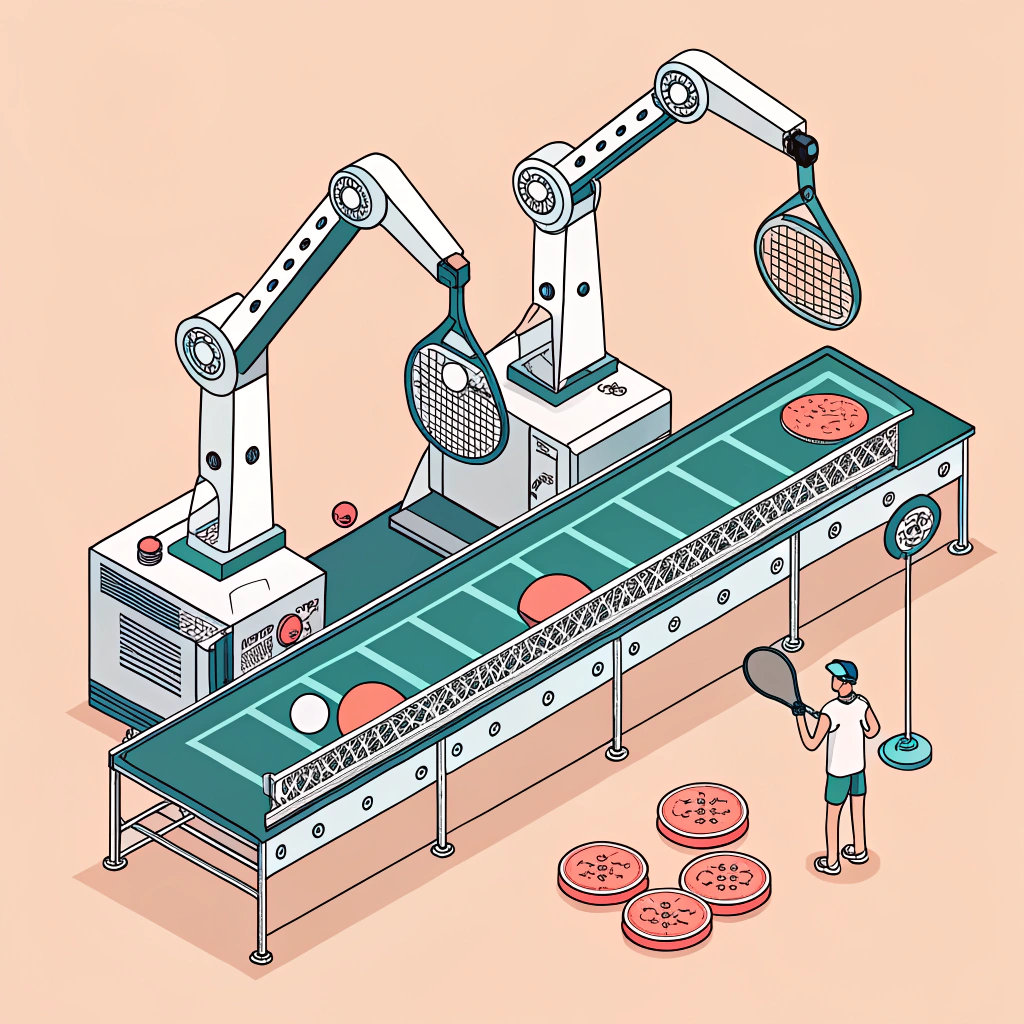High-performance padel rackets require a careful balance of advanced materials, precise manufacturing, and tailored design options. In this article, we address the challenges procurement managers face when selecting premium padel equipment and how NEX Padel meets these challenges with cutting-edge solutions.
For sports equipment procurement managers, selecting the right padel racket is not just about aesthetic appeal—it’s about performance, durability, and precision manufacturing. In the competitive world of padel, manufacturers must deliver rackets that not only perform well on the court but also meet stringent quality and technical standards. Procurement challenges include managing material specifications, verifying production precision, and balancing the need for innovation with cost competitiveness.
These challenges can arise from:
- The need for high-performance materials like carbon fiber1 (3k, 12k, 18k variants) and fiberglass.
- Ensuring customization flexibility for various design types (Diamond, Round, Teardrop).
- Adapting to rapid prototyping and quick turnaround times while maintaining stringent quality control.
- Monitoring market trends and adapting to changing consumer preferences and competitive brands.
The challenges described stem from several core factors:
-
Material Specifications:
The choice between different carbon fiber grades (3k, 12k, and 18k) directly influences a racket’s weight, stiffness, and durability. Misalignment in material choice can compromise racket performance and reduce market competitiveness. -
Production Precision2:
Advanced padel rackets require state-of-the-art production techniques. Even slight variances in manufacturing can lead to significant performance differences. Precision is critical not only in the racket’s core structure but also in finishing touches like grip design and handle customization. -
Customization and Design Flexibility:
Buyers often look for a product that can be customized to fit their brand identity. This includes unique design shapes (Diamond, Round, Teardrop), specific color palettes, and custom logo prints on both the racket and hand grips. The ability to offer tailored solutions can be a decisive factor in B2B purchasing decisions. -
Speed and Reliability in Prototyping:
Quick turnaround time is essential, especially when orders require rapid prototyping3. Consistency in quality while meeting tight deadlines is a major challenge that many manufacturers face.
To address these challenges, NEX Padel employs a multi-faceted strategy built on advanced material science, efficient production methods, and robust customization capabilities. Below is a detailed table summarizing our solution approach:
| Aspect | Challenge Addressed | NEX Padel Approach |
|---|---|---|
| Material Quality | Variability in carbon fiber and fiberglass | Utilization of premium 3k, 12k, and 18k carbon fibers with rigorous quality control measures. |
| Production Precision | Inconsistencies due to outdated technology | Integration of advanced robotics and precision machinery ensuring minimal variance in every production batch. |
| Customization Capability | Limited design options and ineffective branding | Offer fully customizable designs (Diamond, Round, Teardrop) along with tailored printing, color selection, and hand grip logo customization. |
| Rapid Prototyping | Long turnaround times and sample delays | Implement a streamlined prototyping process enabling quick mockups and faster sample approvals. |
| Quality Control | Lack of consistent performance data | Continuous monitoring during production and outcome benchmarking against international standards. |
NEX Padel prides itself on leveraging advanced padel technology4. Our range of materials, from fiberglass to high-grade carbon fiber types, allows us to balance lightweight design with robust impact resistance. This degree of production precision means that every racket not only meets player expectations but also supports the brand promise of durability and high performance.
Our three core design types are:
- Diamond: Tailored for power hitters looking for maximum impact and stability.
- Round: Designed for controlled shots with a larger sweet spot for consistency.
- Teardrop: Offers a balanced mix of agility and control, suitable for versatile play styles.
Alongside these design options, we offer custom printing and color schemes to help our B2B partners align their products with brand specifications. Additionally, we can customize the hand grip and handle cover, ensuring your branding appears on every aspect of the product.
Our dedicated production line is managed with a strict adherence to quality and reliability. Here’s how we ensure that every padel racket we manufacture meets the highest standards:
-
Advanced Machinery:
We utilize the latest robotics and automated fabrication processes to guarantee that each racket is produced with impeccable precision. -
Rigorous Testing:
During and after production, each batch of rackets undergoes extensive testing. This includes durability tests, structural integrity analyses, and performance simulations to ensure the final product is ready for competitive play. -
Rapid Prototyping and Feedback:
Quickly converting design ideas into prototypes is vital. Our prototyping process allows us to fine-tune designs based on real-world testing and feedback, ensuring that the final product aligns with market needs. -
Data-Driven Adjustments:
By continuously collecting and analyzing performance data from our products in the field, we ensure that any necessary design or production adjustments are promptly implemented. This commitment to data-driven quality control5 not only meets current standards but often sets new benchmarks in the industry.
While NEX Padel strives to deliver superior quality padel rackets, there are a few considerations to keep in mind:
-
Cost vs. Performance Trade-offs:
Although premium materials and advanced production techniques may drive up costs, the enhanced performance and longer-lasting durability often justify the investment. Our pricing strategy is designed to deliver competitive value without compromising quality. -
Customization Lead Time:
Although rapid prototyping is a cornerstone of our approach, highly specialized customization requests may extend lead times slightly. We recommend early engagement with our sales team to align all expectations around delivery schedules. -
Market Dynamics:
The sport equipment market is continuously evolving. While our current models are aligned with the latest trends, staying ahead requires continuous adaptation. We actively monitor industry trends to anticipate and integrate new design and material innovations. -
Batch Variability:
Given the variable nature of handcrafted customizations, occasional minor variations might occur, though we adhere strictly to quality control benchmarks to minimize any inconsistencies.
A leading sports equipment distributor recently partnered with NEX Padel to update its product line with high-performance padel rackets. The project demanded a combination of rapid production turnaround, precise customization, and material excellence.
-
Enhanced Material Integration:
Switching to a composite of 12k and 18k carbon fiber resulted in rackets that demonstrated a significant performance improvement in terms of vibration reduction and power transfer. -
Faster Delivery:
By utilizing our streamlined prototyping process, the distributor received the first batch of custom-designed rackets within an unprecedented timeframe, allowing for timely market launch. -
Positive Market Reception:
End-user feedback highlighted the improved balance, increased sweet spot, and overall durability of the rackets, leading to enhanced brand loyalty and repeat orders.
This case study underscores how targeted technical improvements and agile production methods can lead to tangible market success. Leveraging such innovative production techniques is essential for any B2B partner seeking to remain competitive in the dynamic sports equipment market.
In summary, selecting a high-performance padel racket involves addressing key challenges including material specification, production precision, customization flexibility, and rapid prototyping. NEX Padel’s advanced production methods, diverse material options, and commitment to quality control provide a significant competitive edge for brands looking to enhance their padel product lines. Our comprehensive approach ensures that every component—from the choice of carbon fiber grade to the final customized print—is optimized for peak performance and durability.
For procurement managers and product developers, the following actions are recommended:
-
Evaluate Material Needs:
Assess your market needs and select appropriate carbon fiber types (3k, 12k, 18k) based on your performance and durability criteria. -
Leverage Customization:
Utilize our fully customizable design options to align product aesthetics with your brand identity. Discuss potential design adaptations with our team to explore tailored solutions. -
Emphasize Precision and Quality:
Prioritize manufacturers who demonstrate robust quality control measures and data-driven production techniques. Request case studies and product testing reports to verify performance claims. -
Engage Early for Quick Turnaround:
To benefit from rapid prototyping, initiate discussions early. Our agile manufacturing process ensures that even highly customized orders receive swift and reliable delivery.
Choosing the right manufacturing partner is essential for maintaining your competitive advantage. At NEX Padel, our commitment to technical excellence, advanced materials, and rapid delivery ensures that you receive a product that not only meets but often exceeds industry standards. Consider partnering with us to redefine what high-performance padel rackets can achieve.
Which brand is best for padel rackets?
While several brands have distinct strengths, the best choice depends on your performance needs. For instance, manufacturers like Bullpadel and Babolat are known for power-oriented diamond shapes, while companies such as Nox, Head, or Adidas excel in delivering rackets with controlled responses and ample sweet spots.
What is the easiest padel racket to play with?
For beginners, lighter and more balanced options are typically preferred. A racket that minimizes weight and emphasizes balance can reduce the learning curve and enhance early performance.
Are expensive padel rackets worth it?
High-performance rackets often justify their cost through increased durability and superior manufacturing precision. However, the value of an expensive racket is best measured by its performance improvements and its ability to elevate gameplay over time.
-
carbon fiber: Read the article to understand the different grades of carbon fiber and how their properties impact the performance, weight, and durability of sports equipment. ↩
-
Production Precision: Learn how precise manufacturing techniques and quality control are critical in achieving consistent, high-quality sports products. ↩
-
rapid prototyping: Discover the benefits of rapid prototyping in reducing product development time and how it enables faster iteration cycles in design. ↩
-
padel technology: Explore the advanced technologies used in padel equipment that enhance performance and offer competitive advantages in the market. ↩
-
data-driven quality control: Understand how leveraging performance data and analytics can lead to continuous improvements in manufacturing and product quality. ↩







